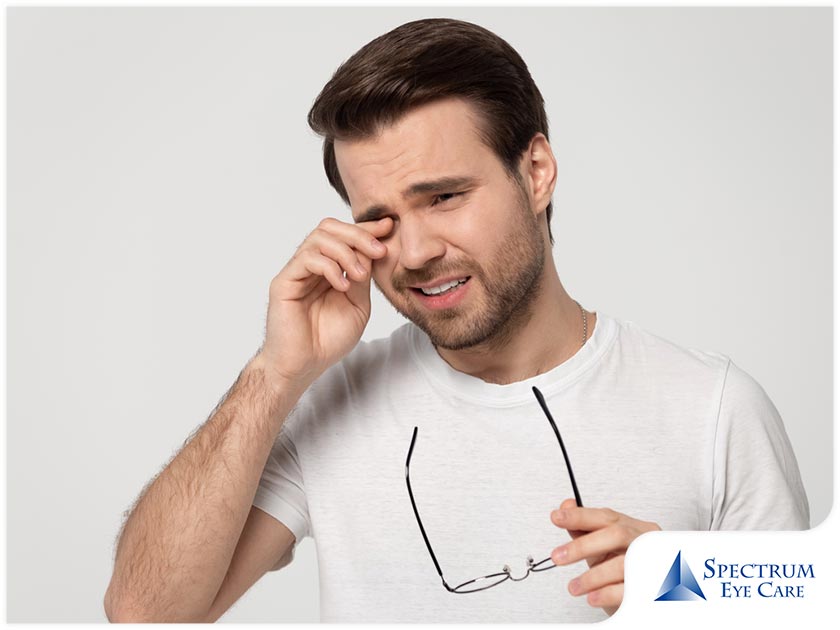Residents of Charlotte, NC, are all too familiar with dry eyes caused by the region’s environment and climate. Not only can dry eyes lead to discomfort in everyday activities like working on your computer or driving, but it can also mean long-term damage to eye health if left untreated. This blog discusses everything you need to know about dry eyes and the proper eye care to take to prevent it.
Definition of Dry Eyes
A dry eye is a condition caused when the body does not produce enough tears or the quality of tears produced is inadequate to help lubricate the eye.
Several factors can contribute to dry eyes, including age, allergies, medications like antihistamines and birth control pills, windy or smoky environments, tear duct obstructions such as blocked glands or infection, certain diseases like Sjogren’s syndrome, wrong prescription eyeglasses, and more.
Symptoms, Diagnosis and Treatment of Dry Eyes
The most common symptom of dry eyes is eye discomfort and can include burning, itching, stinging or tearing. Other symptoms include having a sensation of something in the eye like sand or dirt, increased light sensitivity, and blurred vision caused by inflammation.
Eye doctors can perform a comprehensive evaluation to accurately diagnose dry eyes. This involves testing for tear production as well as checking for any underlying causes, such as allergies or infections, that might be contributing to the condition.
Once these have been identified, a plan of treatment will be created to relieve symptoms. Depending on the severity, doctors may prescribe eye drops or oral medications as well as suggest lifestyle changes like limiting time outdoors and avoiding windy environments when possible.
Are Dry Eyes Permanent?
The seriousness of dry eyes can vary from person to person and usually depends on the underlying cause. If left untreated, it can lead to long-term damage, such as weakened vision or scarring of the cornea. For these reasons, it’s essential to seek treatment from professionals in a timely manner.
Risk factors for developing dry eyes include gender (more common in women), age (increasingly more common with age), contributing medical conditions like diabetes, certain medications, and environmental factors like windy weather, air conditioning, and smoke exposure.
Prevention of Dry Eyes
To prevent dry eyes, Spectrum Eye Care recommends the following:
-
Wear sunglasses when outdoors to shield your eyes from the sun.
-
Avoid using contact lenses.
-
Limit time spent indoors on computers or watching TV.
-
Reduce caffeine consumption.
-
Drink plenty of water each day.
-
Improve indoor humidity levels with a humidifier, especially during winter.
-
Schedule regular eye evaluations at least once a year.
Eye Care for Dry Eyes
Although dry eyes can cause discomfort and long-term vision damage if left untreated, many of its symptoms can be managed through lifestyle adjustments, medications or a combination of both. The team at Spectrum Eye Care is here to provide comprehensive dry eye evaluations so you can find relief from your symptoms and learn any preventative measures necessary for protecting your overall eye health. Call (704) 543-9000 or send us a message online to set up an appointment.

